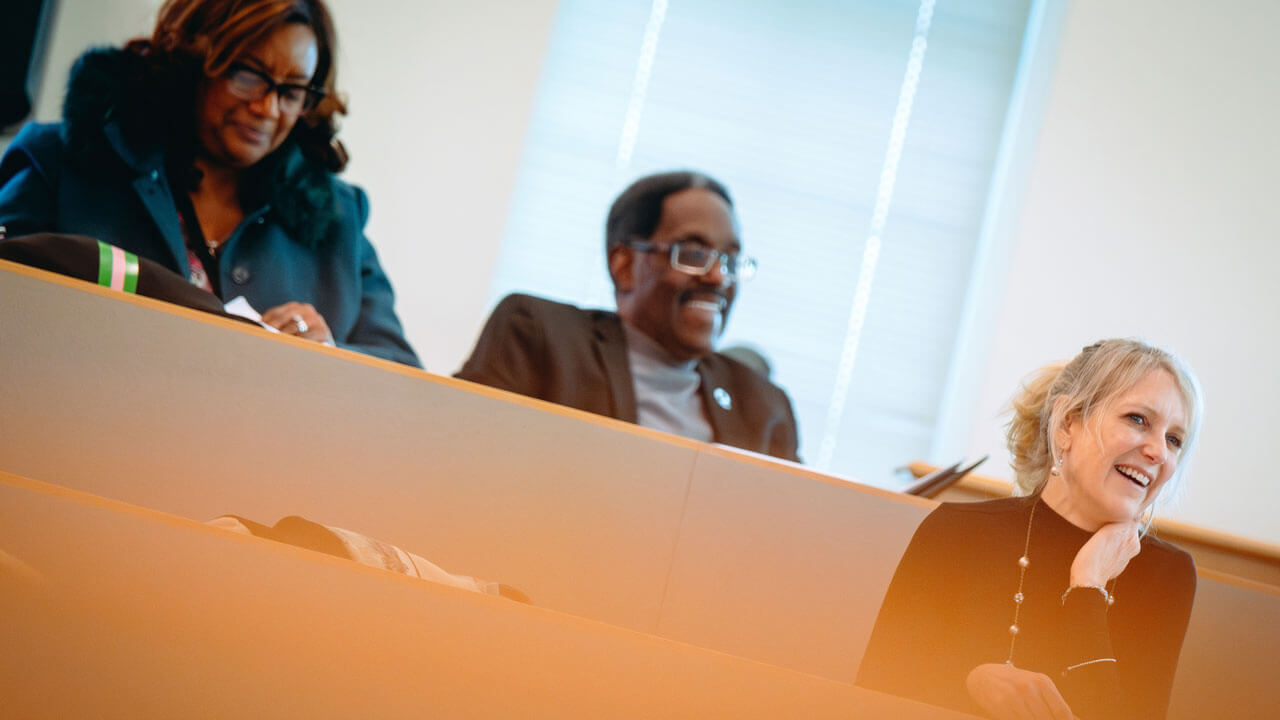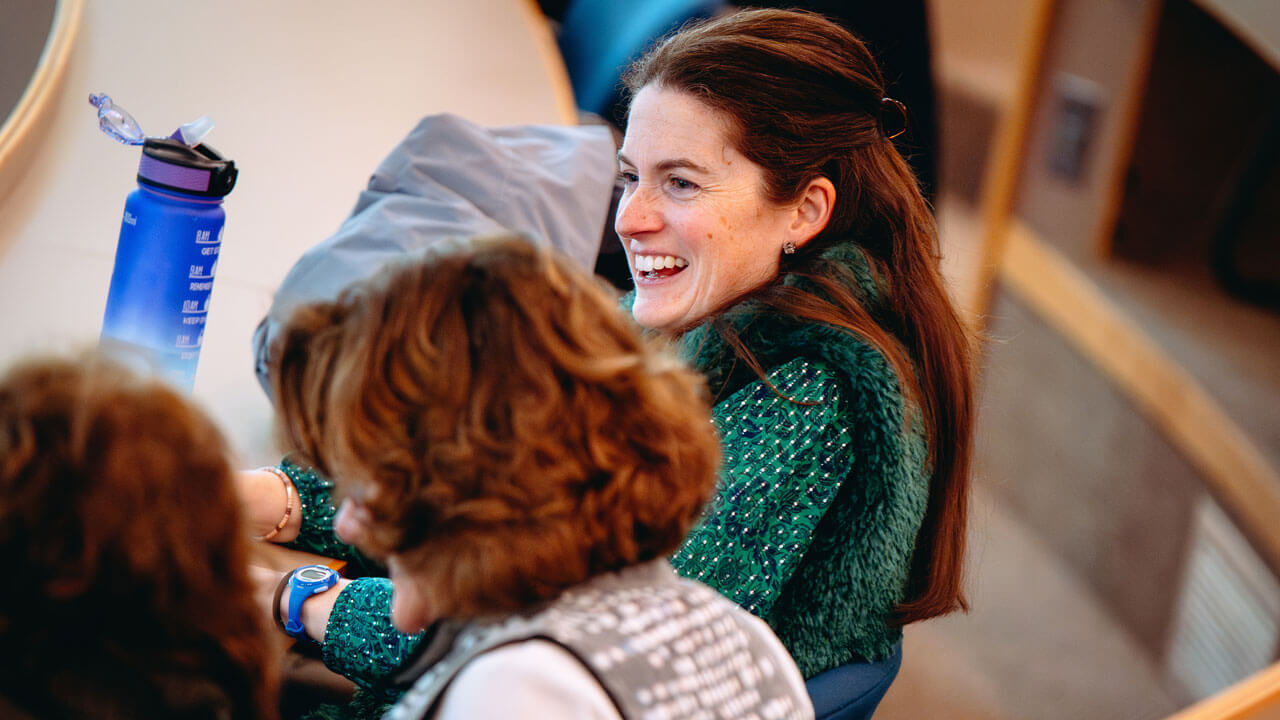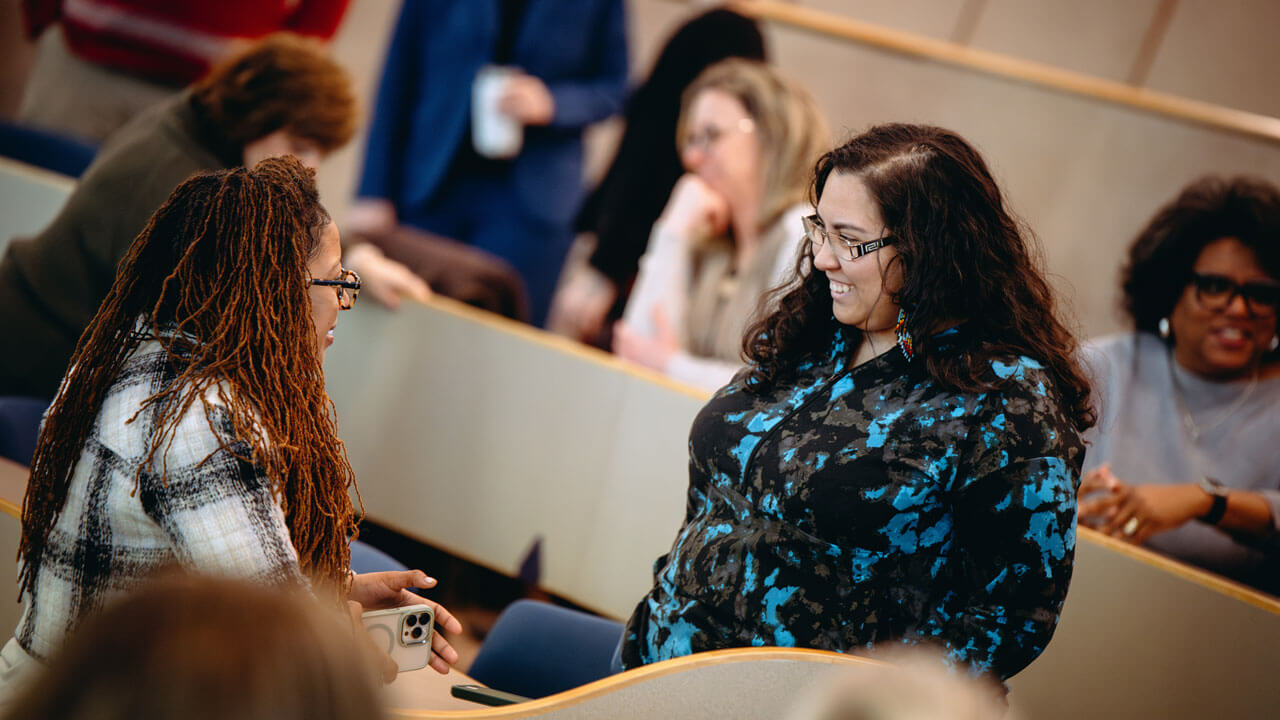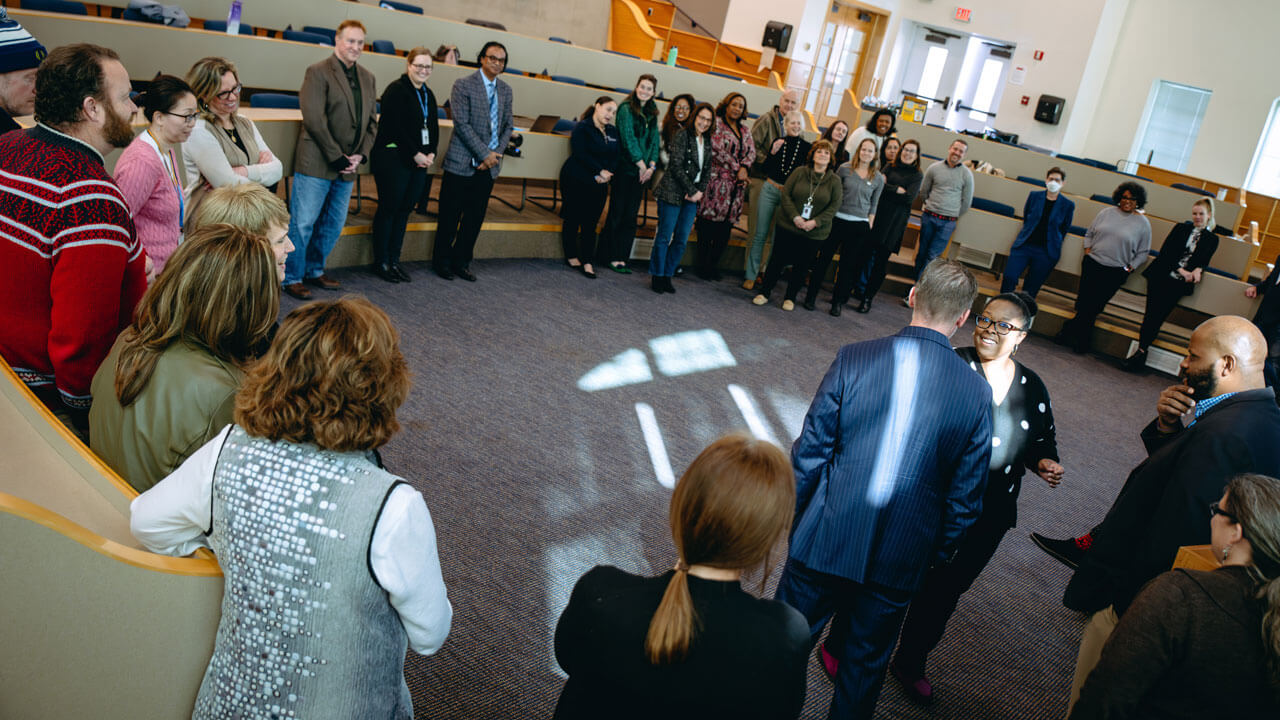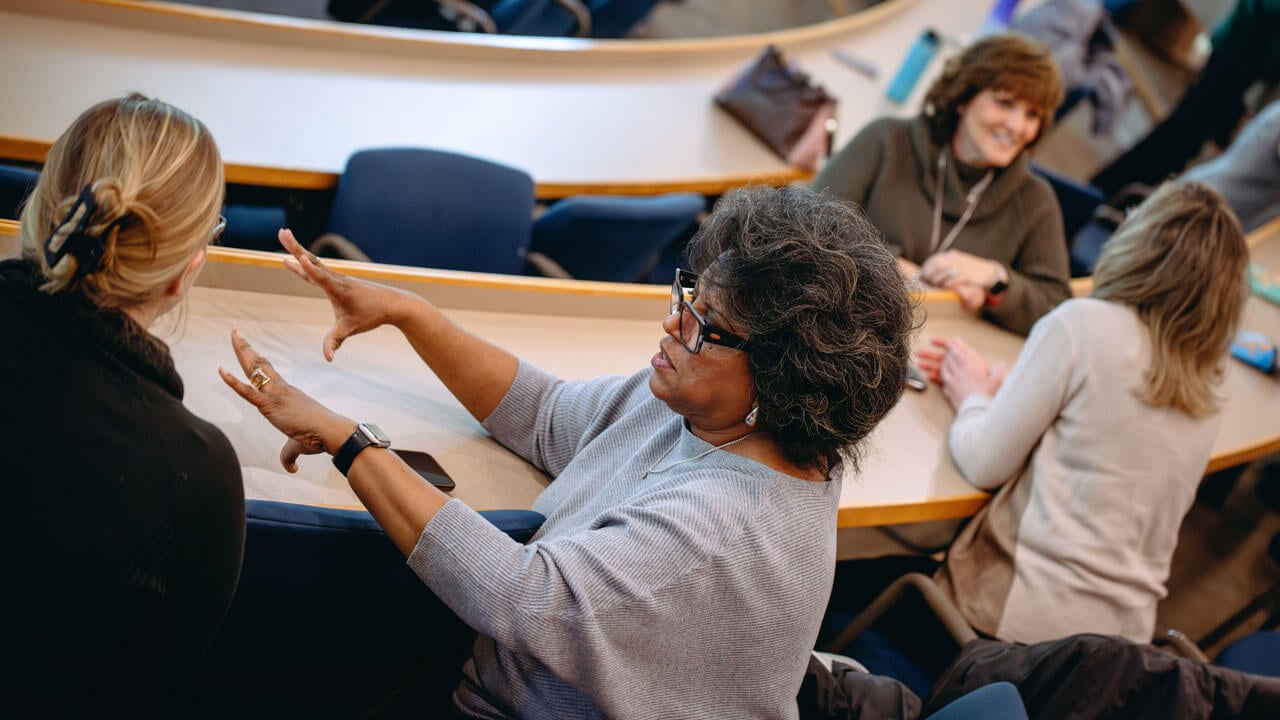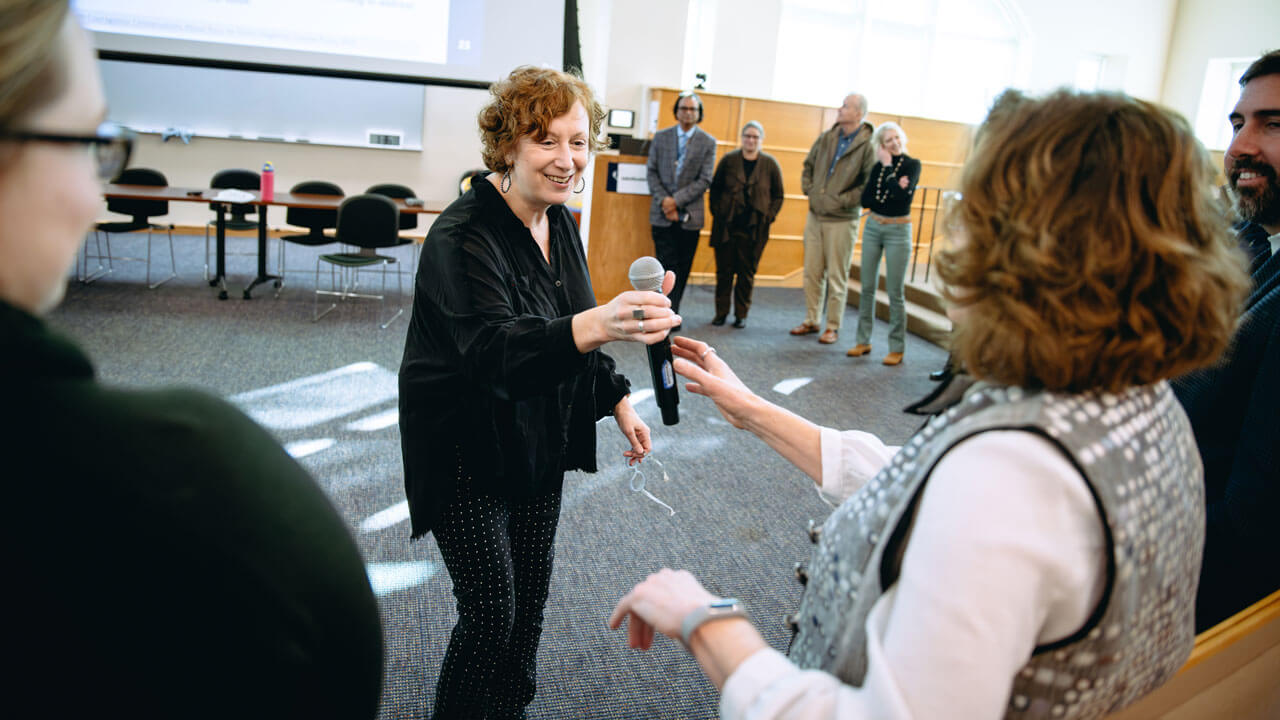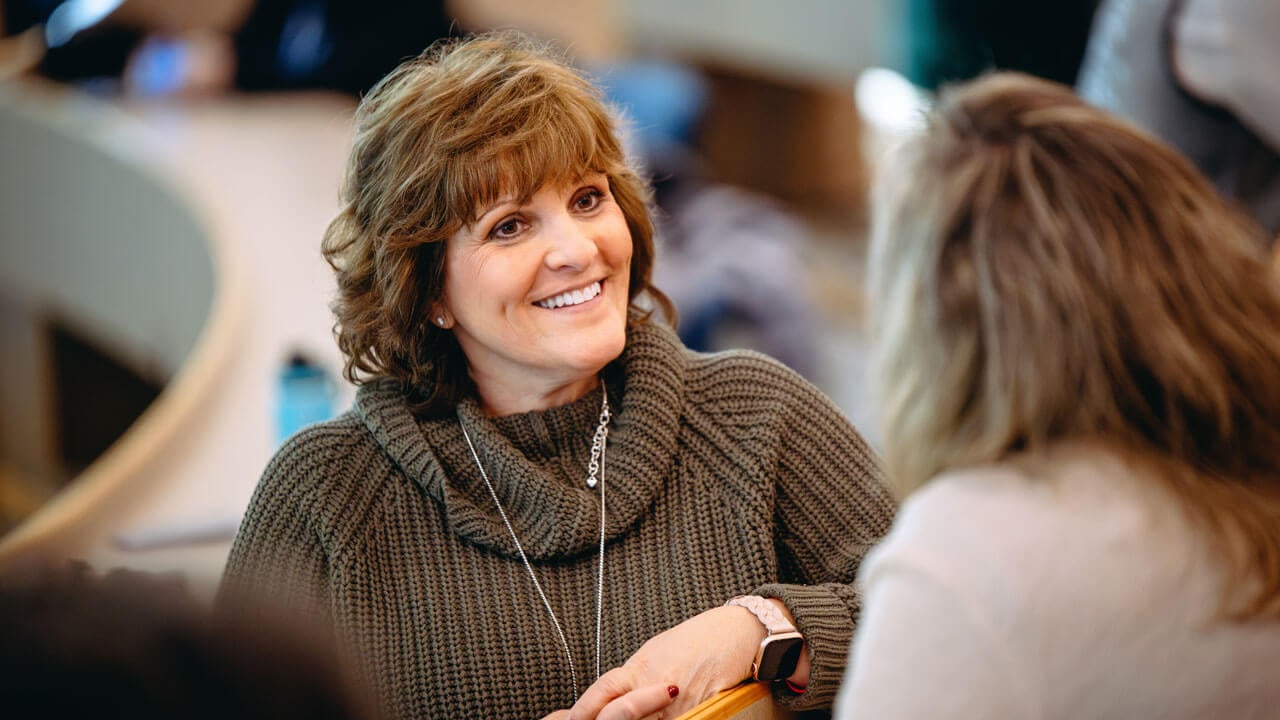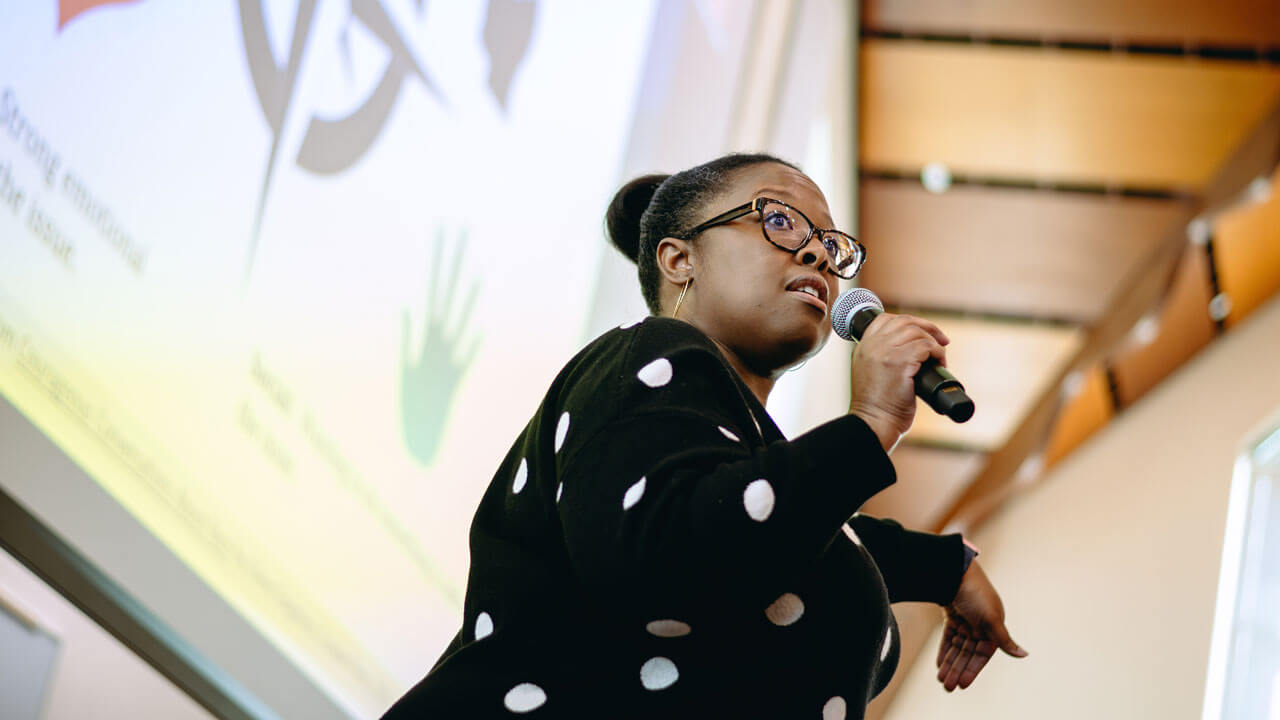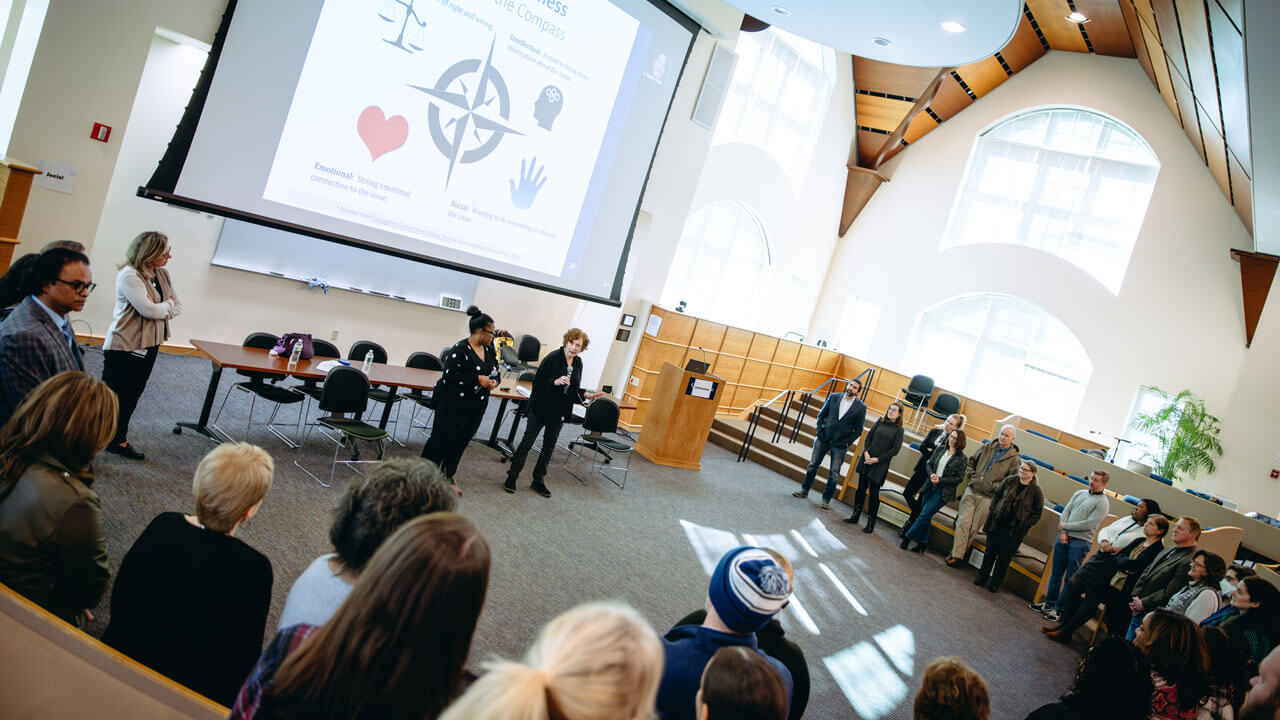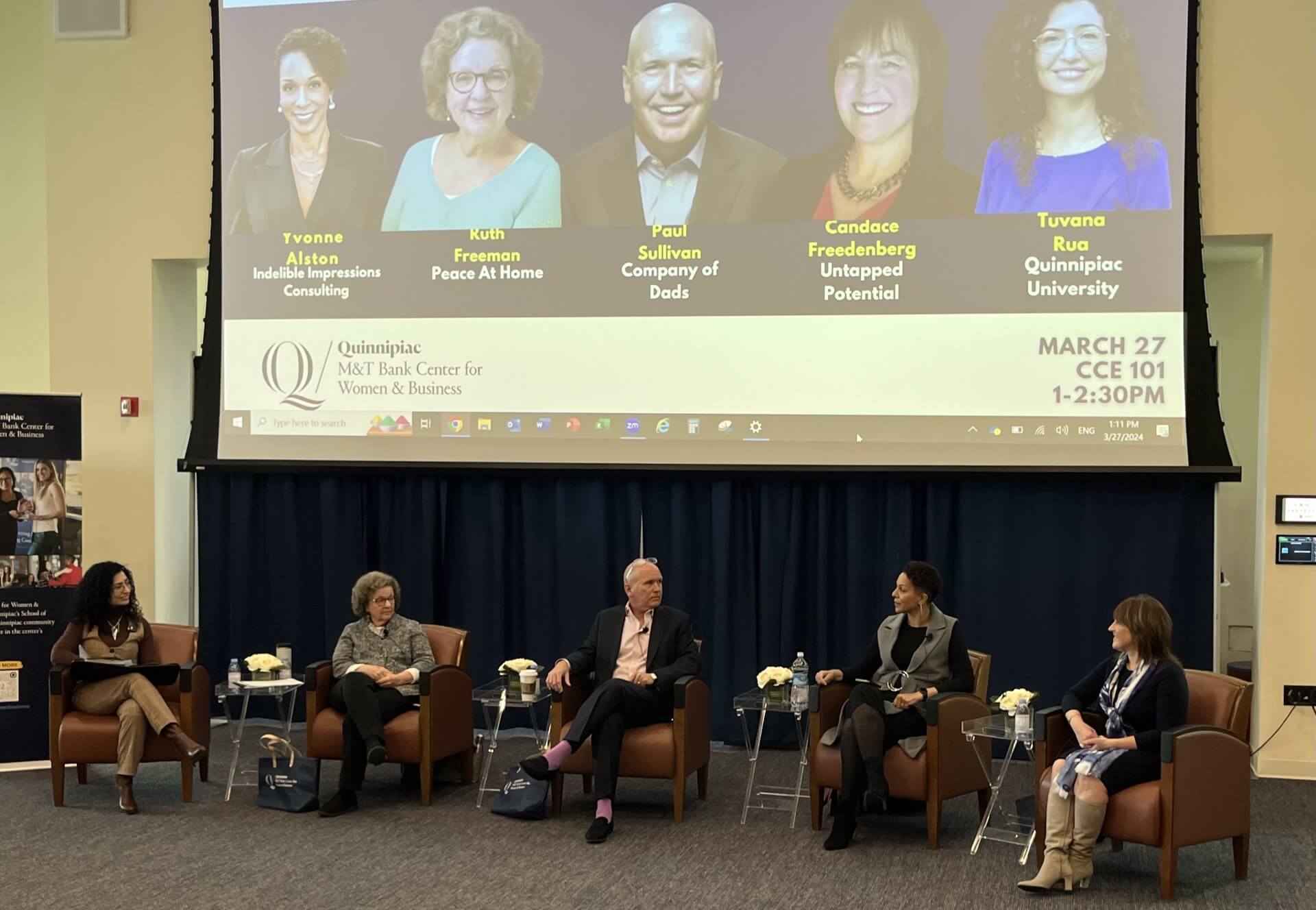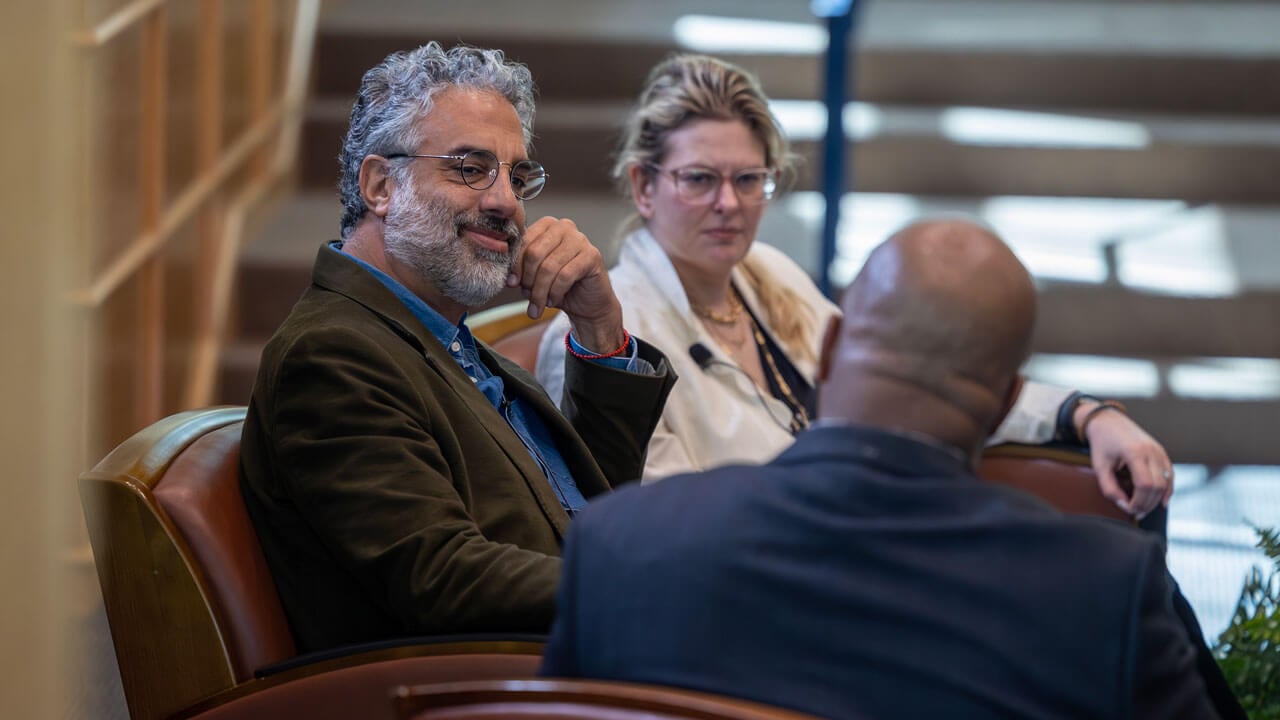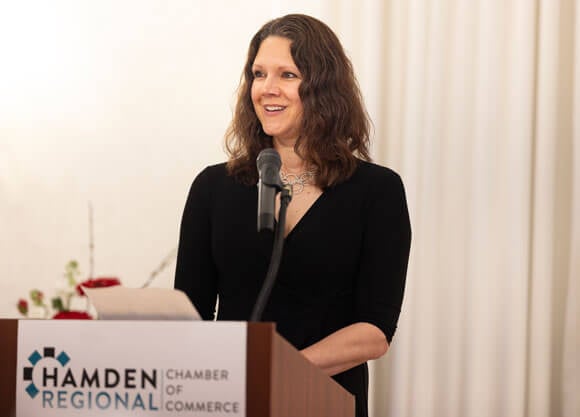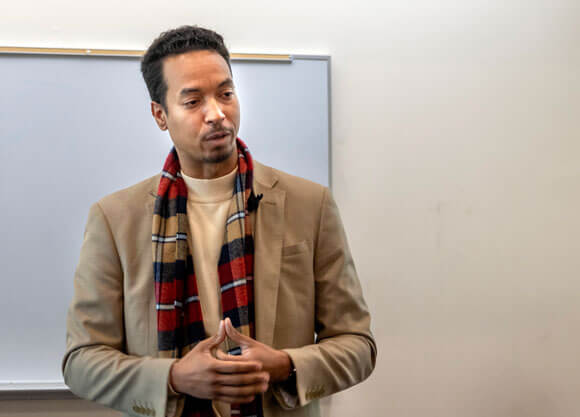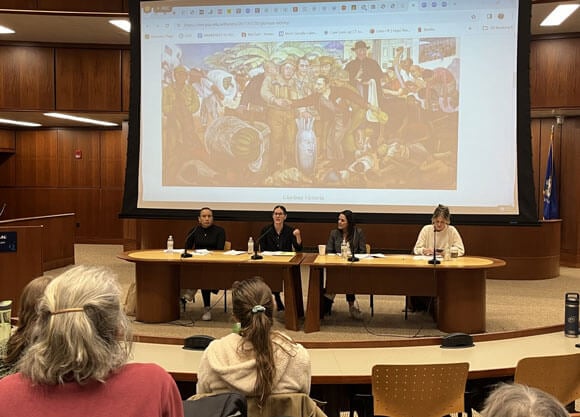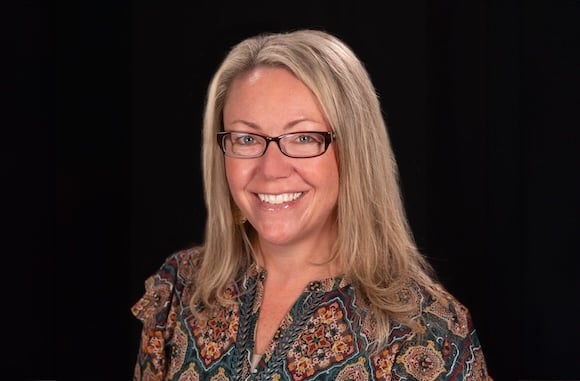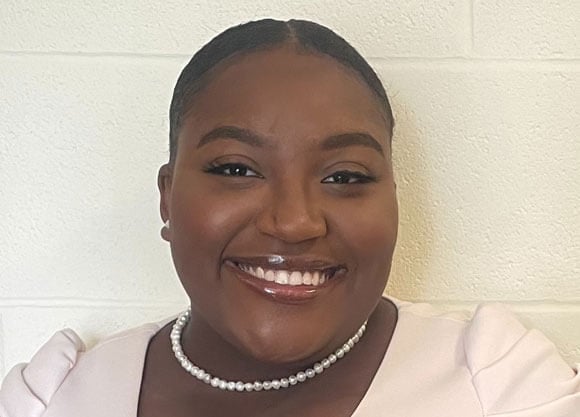
Cindy Maher and Jamie Guite, of Leading Edge Coaching and Development, led the conversation for the second installment of Quinnipiac’s 2024 Critical Conversations series. Their talk took place on February 27 in the Mount Carmel Auditorium.
The university's Critical Conversations series is intended to cultivate an inclusive and intellectually stimulating environment at Quinnipiac, fostering inclusivity of thought, respectful dialogue, empathic engagement and open-mindedness among students, faculty and staff.
Maher and Guite brought a blend of improv and light humor to temper their instructional discussion on respectfully engaging others in courageous conversations.
“We use humor, but it is never to make light of things; it is simply to make it light enough to take it in,” said Maher.
Their improv underscored how communication can often break down between people. Their talk shared skills for the audience to try during brief breakout sessions focused on listening and learning from one another.
Guite said an important element for having a difficult conversation is creating the right environment to foster that conversation. While the understandable assumption may be that a “safe space” is the best place, what’s really required is a “brave space,” Guite said.
“What you really want to create for courageous conversations is a brave space. In a brave space, people can push back. You can be different. You can come to the table with one stance when somebody who’s sitting on the other side doesn’t feel the same way. But you know that you’re going to come to that table in good faith and goodwill. You’re going to listen to learn; and that the goal is seeking knowledge and understanding — not to persuade, not to convince,” said Guite.
She said it's a difficult balance, but a valuable skill.
In many cases, difficult discussions fail because a person will present their point and then shut down, rather than open up to listen to what another person may have to say.
“It’s a hard spot to be in, because at the end of the day, when we feel strongly about something, we want to convince,” said Guite. “So in order to have these conversations, to stay engaged, and to get to a point where we’re able to learn and still respect each other, we build a brave space."
In the breakout sessions, participants spoke and listened to one another on topics including their first recollection of becoming aware of race.
Ahead of these discussions, Maher went over six ground rules for a brave conversation:
-
Speak your truth
-
Be curious
-
Expect non-closure
-
What happens here stays here
-
Listen to learn
-
Stay engaged
Maher also introduced the “conversation compass,” another tool for entering difficult discussions. The tool is adapted from the work of Glen Singleton, author of “Courageous Conversations About Race.”
“When we’re sharing our own stories, it’s challenging, because the question is, how is the person hearing your story going to react? But having these conversations is really important. So in order to have these conversations, Glen Singleton created a compass,” said Maher.
“This compass is about the four places people enter these very challenging conversations because we all come in from different areas,” Guite said. “We all have different reactions to them, and we all have different beliefs behind it.”
The four points of the compass are a moral point (a belief something is right or wrong), an intellectual point (being supplied with information or needing more information to make a decision), an emotional point (strong emotional reaction to a topic), and a social point (being moved to take action).
The final tool Guite encouraged the Quinnipiac audience to take away from the talk was to “take a pause.”
“All of this comes down to getting comfortable in the silence and creating the pause. That is your time. You might not have control over your initial response, but you have control over what you do with it. Sometimes, we need a second or two before moving forward, before speaking, before taking action,” said Guite.
In this Article
Stay in the Loop
Quinnipiac Today is your source for what's happening throughout #BobcatNation. Sign up for our weekly email newsletter to be among the first to know about news, events and members of our Bobcat family who are making a positive difference in our world.
Sign Up Now
